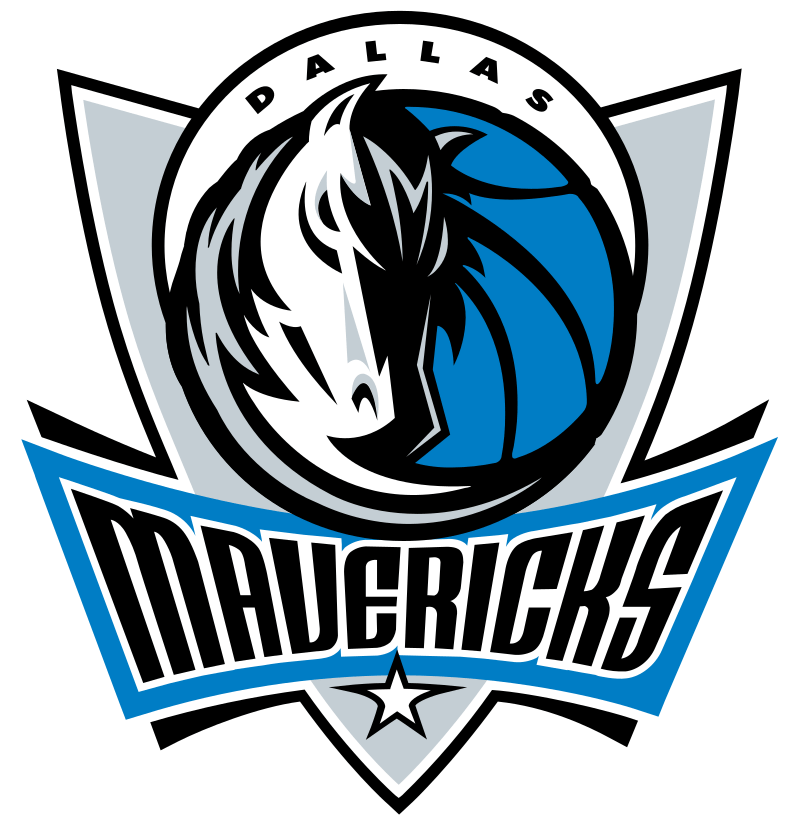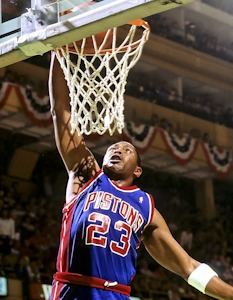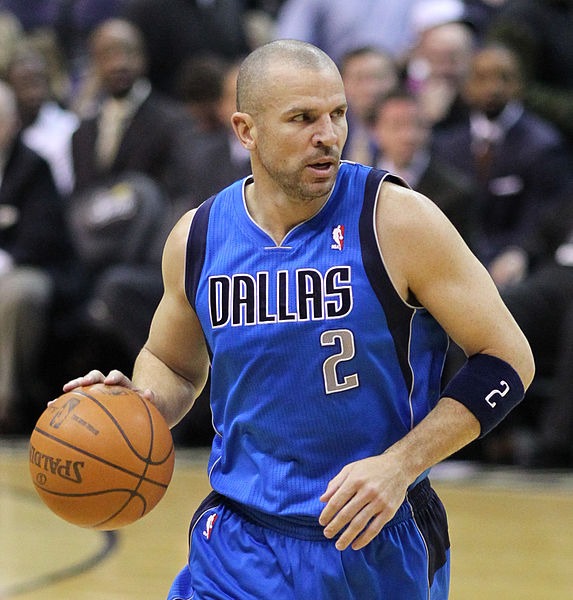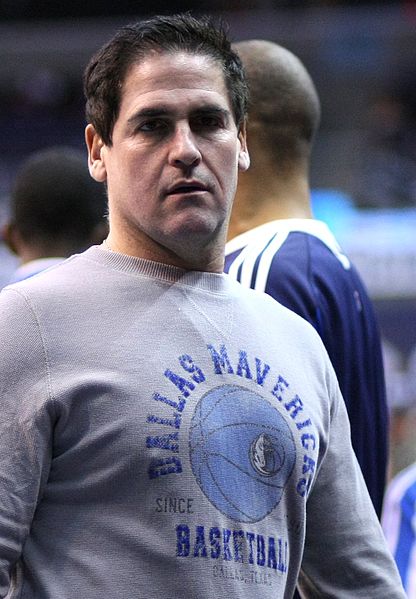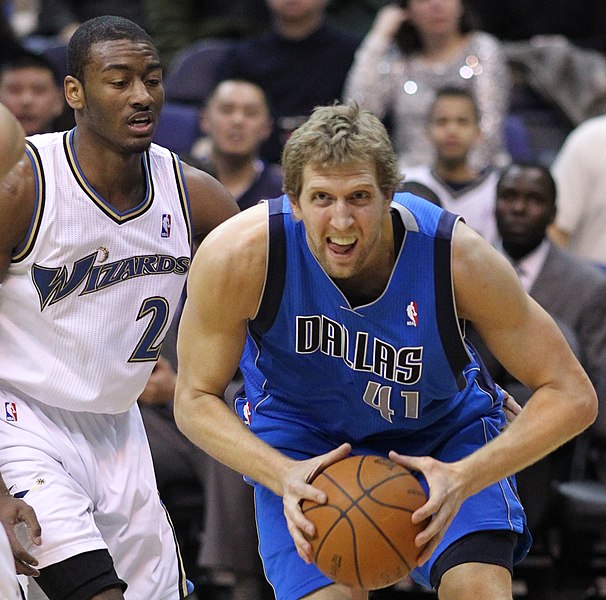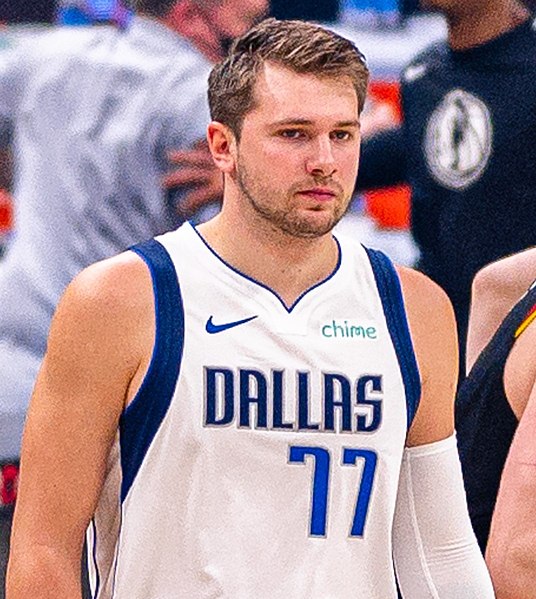The Dallas Mavericks are a professional basketball team based in Dallas, Texas. They are a member of the Western Conference Southwest Division of the National Basketball Association (NBA). The Mavericks were established in 1980 and have since become one of the most successful franchises in the NBA. If you want to look into their history, you’re at the right place.
The 1980s: Founding, Early Struggles, and Successes
The Dallas Mavericks are a professional basketball team in the NBA. They joined the league on May 1, 1980, as an expansion franchise. The team’s owner, Donald Carter, had been working to bring an NBA team to Dallas since 1978. The Mavericks’ first president and general manager was Norm Sonju.
To support the team, the city of Dallas helped build the Reunion Arena, which opened in 1979 with a seating capacity of 17,007. The Mavericks played their first regular season game there on October 11, 1980, winning against the San Antonio Spurs. During their early years, the Mavericks struggled to find success on the court. In their inaugural season, they posted a record of 15 wins and 67 losses, which was the worst record in the league that year.
Despite concerns that Dallas might not support a basketball team due to its strong football tradition, the Mavericks received decent attendance in their first season and gained popularity over time. By the 1985-86 season, they set an NBA record by filling the Reunion Arena to 99.4 percent capacity.
The Mavericks’ early leadership hierarchy included Director of Player Personnel Rick Sund, Head Coach Dick Motta, and Assistant Coach Bob Weiss.
Despite their struggles, the Mavericks had some notable players, including Derek Harper, Mark Aguirre, and Rolando Blackman. Aguirre and Blackman were added to the 1981 NBA Draft. With each passing season, the team showed significant improvement and finally made it to the NBA Playoffs in 1984 after finishing the regular season with a 43-39 record.
During that season, Aguirre became the first Maverick to participate in the NBA All-Star game. In the playoffs, Dallas won their first series against the Seattle Supersonics in a thrilling five-game showdown. In the decisive fifth game, the Mavericks staged an incredible rally in the final minute, forcing overtime and ultimately winning 105-104 in front of an overflow crowd of nearly 9,000 fans. However, their playoff run ended in the second round with a loss to the Los Angeles Lakers in five games.
Throughout the 1980s, the Mavericks established themselves as a regular presence in the Western Conference Playoffs. In 1986, they won another playoff series against the Utah Jazz before falling to the Los Angeles Lakers. The following year, in 1987, Dallas achieved its first division championship, topping the Midwest Division with an impressive 55-27 record. However, they were unexpectedly defeated by the Seattle Supersonics in the first round of the playoffs. This outcome led to the surprise resignation of coach Dick Motta, who had been with the Mavericks for their first seven seasons.
The Mavericks then hired former Phoenix Suns head coach John MacLeod. Under his leadership, the team experienced its most successful season in 1987-88. They won playoff series against the Houston Rockets and the Denver Nuggets, earning a spot in the Western Conference Finals for the first time in franchise history. Although the series went to seven games, the Mavericks fell short, losing four games to three. This marked the peak of that particular era of Maverick basketball.
In the following season, the Mavericks made significant trades. They sent Aguirre to the Detroit Pistons at mid-season for Adrian Dantley and fired John MacLeod as coach. Richie Adubato took over as the new coach and led the Mavericks to a solid 47-win season. Despite being the sixth seed in the Western Conference, they were unable to advance in the playoffs, as they were swept in the first round by the Portland Trail Blazers.
1990s: Rebuilding and the Rise of the Mavericks
After the 1990 playoffs, the Mavericks entered a rebuilding phase that lasted for the next four seasons. During this period, the team struggled and averaged only nineteen wins per season. They made some significant changes, including trading long-time franchise favorites Rolando Blackman and Derek Harper. Unfortunately, promising young player Roy Tarpley faced a suspension related to drugs.
The team also went through several coaching changes, with Richie Adubato, Garfield Heard, and Quinn Buckner having brief and disappointing tenures as head coaches. However, in 1994, Dick Motta returned as the coach, and the Mavericks drafted point guard Jason Kidd. Kidd, along with fellow young talents Jamal Mashburn and Jim Jackson, formed the core of the team, known as the “Three Js.”
With Motta at the helm, the Mavericks showed improvement, nearly tripling their win total from the previous season with a 36-46 record. They missed a playoff spot by only five games. However, their progress was short-lived as they regressed the following season, winning only twenty-six games. After two seasons, Dick Motta left as the coach, and the Mavericks traded away all three of the “Three Js” before the end of the 1996-97 season.
In addition to the changes on the court, the ownership of the Mavericks also underwent a transition. Original owner Don Carter sold his majority stake in the team to Dallas businessman and developer Ross Perot Jr.
1996-2000: Revival Era
The 1996-97 season marked the beginning of a revival for the Mavericks, laying the foundation for their success in the 2000s. A significant trade involving Jason Kidd brought in future All-Star Michael Finley, while Don Nelson joined the front office as General Manager. Nelson eventually took over as head coach in December 1997.
Nelson made two franchise-altering moves during the draft night in June 1998. A trade with the Phoenix Suns brought in future All-Star and Most Valuable Player (MVP) Steve Nash. Additionally, a deal with the Milwaukee Bucks allowed the Mavericks to acquire the draft rights to Dirk Nowitzki, a talented young player from Germany.
Despite some struggles, Michael Finley made progress toward becoming an All-Star in the late 1990s. However, Nash and Nowitzki faced challenges in finding similar success during that time. Meanwhile, both the Mavericks and the Dallas Stars of the NHL, who shared the Reunion Arena, benefited from the passing of a bond proposal that partially financed the construction of the state-of-the-art American Airlines Center.
This new arena would pave the way for the Mavericks and the Stars to have a modern home and provide a boost to their growth and success in the upcoming years.
On January 4, 2000, billionaire Mark Cuban agreed to buy the Dallas Mavericks from owner Ross Perot Jr. Cuban, an entrepreneur and long-time Mavericks season ticket holder. Cuban’s passion and enthusiasm for the team ignited excitement among fans, and the players responded by winning more than sixty percent of their last fifty games in the 1999-2000 season. However, they narrowly missed the playoffs.
2000-2015: The Dirk Nowitzki Era
Under the leadership of Nowitzki and coach Don Nelson, the Mavericks achieved consistent success. They made the playoffs in every season from 2000 to 2012, marking the second-longest playoff streak in NBA history at the time. However, during this period, the Mavericks faced several early exits from the playoffs, often falling short of championship aspirations.
The 2000-01 season began with high expectations, aiming to end the team’s long playoff drought. Michael Finley earned his second NBA All-Star Game appearance, and Dirk Nowitzki was named to the All-NBA Third Team. The Mavericks finished the season with an impressive 53-29 record. They ended their eleven-year playoff absence by surprising the NBA world, coming back from a 2-0 deficit to upset the Utah Jazz in a thrilling first-round series, winning three games to two. Unfortunately, their playoff journey and tenure at Reunion Arena came to an end in the next round of the 2001 NBA Playoffs with a loss to the San Antonio Spurs.
During the 2002-03 regular season, the Mavericks achieved a franchise-record sixty wins. They went on to have thrilling seven-game series victories over the Portland Trail Blazers and the Sacramento Kings. With this success, the Mavericks made their second-ever trip to the Western Conference Finals in 2003.
Unfortunately, the team faced a setback when Dirk Nowitzki suffered a knee injury during the third game of the series. Despite their efforts, the Mavericks were unable to overcome this challenge and ultimately lost the series 4-2 to the San Antonio Spurs.
In the following season, the Mavericks faced an early exit from the playoffs, losing in the first round to the Sacramento Kings. Additionally, their All-Star point guard Steve Nash departed in free agency during the summer of 2004. The Franchise’s most successful coach, Don Nelson, unexpectedly resigned in March 2005. His son, Donnie Nelson, took over as the Mavericks’ General Manager. Former Mavericks player and first-year assistant coach Avery Johnson stepped up as the head coach. The team responded positively under Johnson’s leadership, winning sixteen of their last eighteen games. They also staged a comeback from a 2-0 deficit to advance past the Houston Rockets in the playoffs. However, their postseason journey ended in the Conference Semifinals against the Phoenix Suns.
In the 2005-2006 season, the Mavericks had a breakthrough year. Led by Nowitzki and veterans like Jason Terry and Josh Howard, they posted a franchise record of 60 wins and advanced to the NBA Finals for the first time in team history. However, they were defeated in a hard-fought series by the Miami Heat, led by Shaquille O’Neal and Dwyane Wade.
Dirk Nowitzki’s outstanding fifty-point performance in game five propelled the Mavericks to defeat the Phoenix Suns in six games and reach the NBA Finals. They started the series with two wins at home but ended up losing three consecutive games in Miami and one more at home, falling short of capturing the NBA title.
The disappointment of the previous season served as fuel for the Mavericks, leading them to a franchise-record sixty-seven wins and securing the top seed in the Western Conference. Dirk Nowitzki’s exceptional performance throughout the season earned him the NBA MVP award. However, in a historic turn of events, the Mavericks experienced a shocking first-round upset at the hands of the eighth-seeded Golden State Warriors, coached by former Mavericks coach Don Nelson.
The following season marked the return of future Hall of Fame point guard Jason Kidd, rejoining the team after an eleven-year absence. Despite his addiction, the Mavericks suffered a first-round loss to the New Orleans Hornets in the 2008 Playoffs, leading to the departure of head coach Avery Johnson. The team then hired Rick Carlisle, former head coach of the Detroit Pistons and Indiana Pacers, as Johnson’s replacement.
Under Carlisle’s guidance, the Mavericks achieved fifty or more wins in each of the first two seasons. However, they faced challenges in the playoffs during those years. In 2009, they defeated the San Antonio Spurs in the first round but were eliminated in the second round by the Denver Nuggets. In 2010, the Mavericks entered the playoffs as the second seed but were unexpectedly defeated by the San Antonio Spurs.
The 2010-11 season brought a sense of hope and positivity to Dallas. The Mavericks made significant additions, including center Tyson Chandler, and started the season with an impressive 24-5 record. However, in late December, Dirk Nowitzki suffered a knee injury, requiring a three-week recovery period. Unfortunately, another setback occurred when Caron Butler tore his left patellar tendon during a game in Milwaukee on New Year’s Day in 2011.
Despite these challenges, the Mavericks finished the season with fifty-seven wins, securing the third seed in the Western Conference. However, some analysts doubted their chances, considering them as potential victims of a first-round upset rather than a team with a real shot at winning the NBA Championship.
In a tightly contested series against the Portland Trail Blazers, the Mavericks were tied at 2-2. They returned home and won a crucial game five, followed by a nail-biting victory in game six in Portland to eliminate the Trail Blazers. This set the stage for the Mavericks’ first playoff series against the Los Angeles Lakers since the 1980s.
In an impressive display, the Mavericks rallied in the third quarter of game one in Los Angeles, ultimately securing a win. This ignited a spark that carried Dallas to a stunning sweep of the two-time defending NBA Champions. The sweep was highlighted by a record-breaking performance in a game known as the “Mother’s Day Massacre,” where the Mavericks set an NBA playoff record with twenty three-pointers in a dominant 122-86 victory. The Mavericks continued their strong playoff run by defeating Kevin Durant and the Oklahoma City Thunder 4-1 in the Western Conference Finals.
In the 2011 Finals, the Mavericks faced their old adversaries, the Miami Heat, led by LeBron James. Miami took the opening game on their home court. However, in game two, despite trailing by fifteen points in the fourth quarter, the Mavericks, led by Dirk Nowitzki and Jason Terry, mounted a remarkable comeback. Nowitzki sealed the win with a game-winning basket with only 3.6 seconds remaining.
Miami won game three in Dallas, but the Mavericks bounced back to win game four at home. They secured a crucial victory in game five as well. Then, on June 12, 2011, the Mavericks made history by celebrating an NBA Championship on their opponents’ floor, defeating the Miami Heat 105-95 in game six. Jason Terry led the Mavericks with twenty-seven points in the championship-clinching victory, and Nowitzki was awarded the Finals MVP honor. After a thirty-one-year wait, the Dallas Mavericks became an NBA Championship-winning franchise.
The following season had a delayed start due to an NBA work stoppage, resulting in a compressed sixty-six-game schedule. The Mavericks faced challenges in building team chemistry and won only thirty-six games. They were ultimately eliminated in the first round of the playoffs by the Oklahoma City Thunder.
In the 2012-13 season, Dirk Nowitzki had to undergo knee surgery during the preseason, causing him to miss the first twenty-seven games. As a result, the Mavericks missed the playoffs for the first time since 2000. The Mavericks eventually rebounded in 2014 by winning 49 games and putting up a strong challenge against the San Antonio Spurs in a seven-game series before being eliminated.
After the conclusion of the 2014-15 season, Dirk Nowitzki cemented his place in NBA history by ranking seventh in all-time points scored, surpassing the impressive milestone of 29,000 points. Meanwhile, Rick Carlisle, the Mavericks’ head coach, is on the verge of tying Don Nelson as the team’s most successful head coach, needing just one more win to achieve this feat.
The 2015 and Beyond
In recent years, the Mavericks have seen the emergence of young talent alongside Nowitzki. Luka Dončić, a Slovenian prodigy, was drafted in 2018 and quickly became the team’s new centerpiece. Dončić’s exceptional skills and basketball IQ have garnered widespread acclaim, earning him the NBA Rookie of the Year award in 2019.
Under the leadership of Dončić and coach Rick Carlisle, the Mavericks have shown promise and have made playoff appearances in recent seasons. The team continues to strive for another deep playoff run and a chance to compete for another NBA championship. Mark Cuban continues his ownership of the team.

